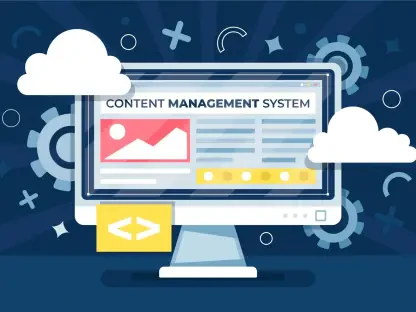In the fast-evolving digital landscape, professionals are increasingly expected to integrate advanced technologies into their working environments. Nevertheless, LinkedIn’s AI writing assistant, despite being a promising tool, has struggled to find its footing among this tech-savvy audience. Launched with the intention of improving the quality of users’ posts on the networking platform, the assistant faced unique challenges given LinkedIn’s professional setting. Unlike platforms such as Twitter or TikTok, where content might be more casual, LinkedIn users approach their posts with the gravity of updating a digital resume. This mindset leads to caution and scrutiny over content that reflects one’s professional image, thus causing hesitance towards using AI-generated text. Despite these impediments, the broader acceptance and integration of AI within LinkedIn continues to surge, as evidenced by the dramatic increase in job listings and profile updates related to AI skills. This signifies an evolving professional landscape where AI expertise is becoming indispensable.
Cautious Integration of AI in Professional Spaces
LinkedIn’s AI writing tool encountered obstacles stemming from the distinctive characteristics of the platform’s user base. Unlike other social sites where content thrives on informality, LinkedIn maintains an atmosphere that emphasizes professionalism and precision. Users recognize that their posts contribute to their public professional persona, leading to increased vigilance and caution in their content creation. This wariness is compounded by apprehension toward AI-generated content, fearing it might detract from the authentic representation of their capabilities. The skepticism is not unfounded, as the professional ramifications could be significant; the potential for negative evaluations or doubts about one’s ability is a considerable concern. Users desire complete control over their messaging to maintain a credible and trustworthy digital footprint. Yet, within this caution lies a recognition of the inevitable: AI advancements are reshaping the professional world, even if its initial reception on LinkedIn’s platform was tempered with prudence.
At the same time, the hesitancy toward adopting AI for content creation doesn’t overshadow the broader trend of embracing AI skills in the professional domain. Over the past year, there has been a remarkable increase in job listings requiring AI proficiency. Companies are eager to tap into the potential of AI, offering roles that demand expertise in these technologies. Similarly, LinkedIn’s users have responded to this demand by bolstering their profiles with AI-related qualifications, a trend witnessing a twenty-fold increase. This dynamic reflects an undeniable shift towards AI skill acquisition, signaling a growing acknowledgment of AI’s necessity. The demand isn’t solely for software engineers or data scientists; professionals across industries are recognizing the strategic advantage these skills provide. Thus, while LinkedIn’s AI tool faced hurdles in gaining acceptance, AI’s influence continues to embed itself deeply into professional development on the platform.
Expanding Demand for AI Expertise
CEO Ryan Roslansky’s insights underscore the widening impact of AI on LinkedIn, echoing a broader industry trend. His experience in utilizing AI to streamline communication, even with top executives such as Microsoft’s Satya Nadella, highlights how AI significantly enhances professional interactions. These tools are not merely adjuncts but essential components in refining efficiency and clarity in the workplace. This kind of efficacy resonates with corporations striving for more streamlined communication channels, particularly amidst the complexities of global business environments. The leveraged AI capabilities demonstrate tangible improvements, persuading more organizations to explore such integrations further.
The traction AI gains in high-level corporate communication paves the path for its acceptance across hierarchical layers, influencing how professionals perceive AI’s role. As more individuals adapt and expand their understanding of AI, the professional ecosystem fosters an environment where these advances become integral to success. Despite the lukewarm reception of the AI post-writing tool, the surge in demand for AI skills on LinkedIn highlights a key transformation. It’s not merely about automating tasks; rather, it’s about enriching the workforce with capabilities that enhance analytical thinking, strategic planning, and decision-making. As professionals look toward the future, acquiring and refining AI skills could be pivotal in leveraging these tools optimally within diverse professional settings. Amidst this progression, AI’s evolving role remains central to shaping the workforce of tomorrow.
Future Considerations and Opportunities
In today’s rapidly changing digital world, professionals are increasingly expected to blend advanced technologies into their work settings. Despite its potential, LinkedIn’s AI writing assistant has struggled to gain traction among its tech-savvy users. Designed to enhance the quality of posts on the professional networking site, the assistant encountered specific hurdles due to LinkedIn’s formal atmosphere. Unlike platforms such as Twitter or TikTok, where content often leans casual, LinkedIn participants treat their posts with the seriousness of updating a digital resume. This results in users being cautious and critical of content representing their professional persona, making them wary of AI-generated text. Despite these challenges, the acceptance and incorporation of AI within LinkedIn are growing, as shown by the sharp rise in job postings and profile updates that highlight AI capabilities. This trend underscores a shifting professional environment where AI knowledge is becoming crucial for career development and remaining competitive in the job market.









